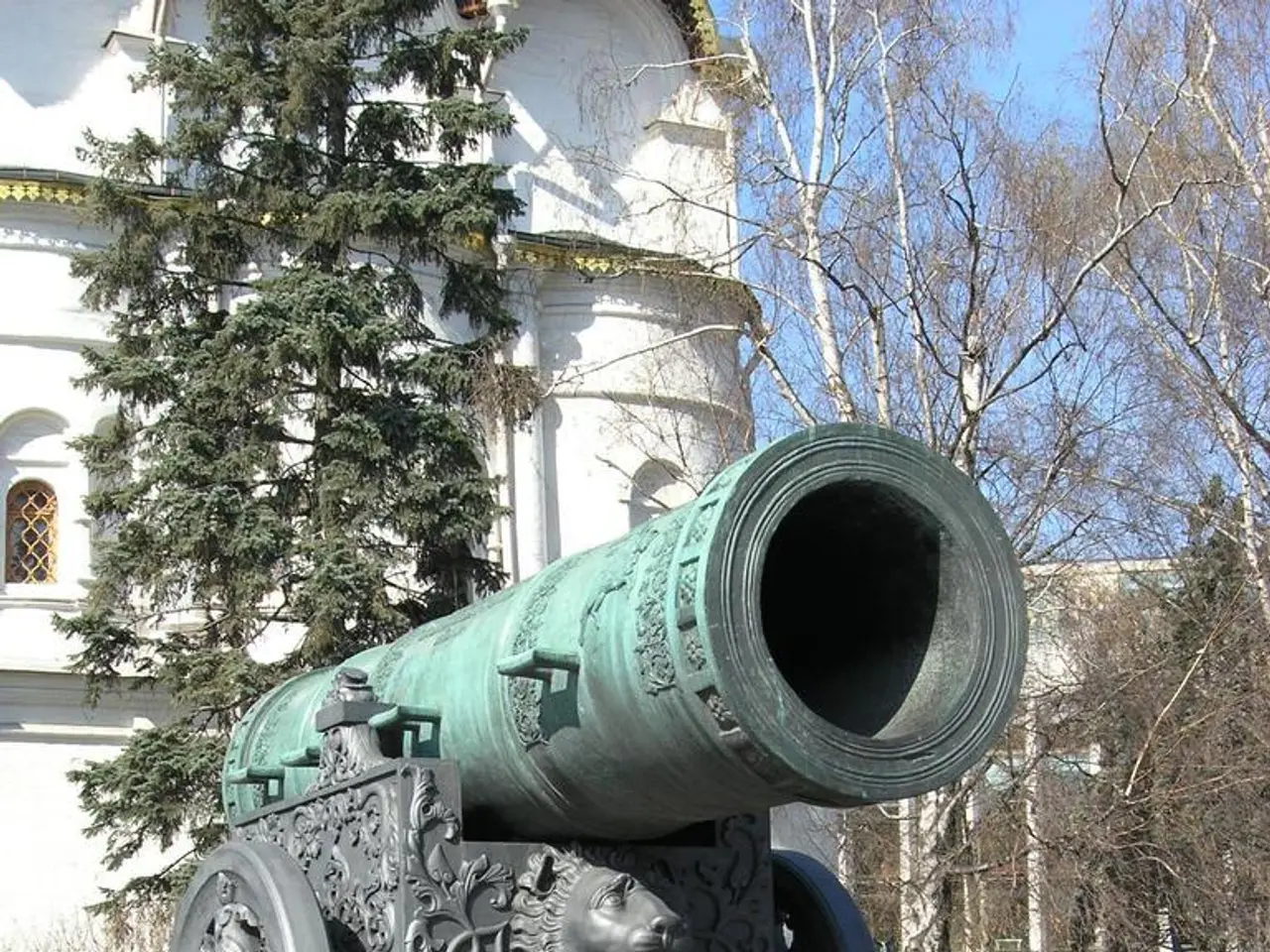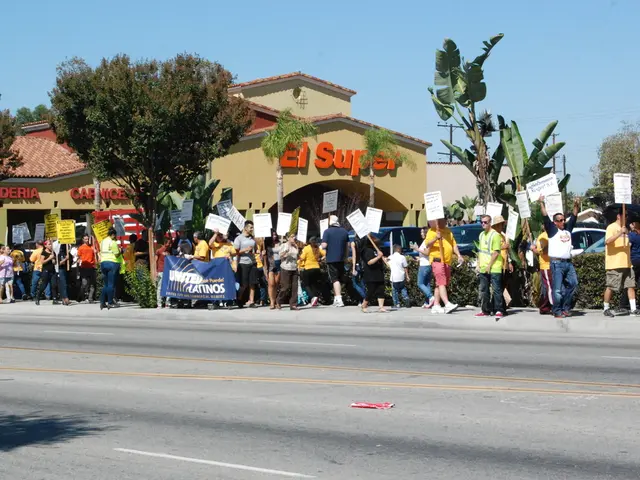EU Accelerates Exit from Russian Liquefied Natural Gas (LNG) Supplies
The European Union is considering a phased halt to the import of liquefied natural gas (LNG) from Russia, as part of its RePowerEU plan. This plan, presented by the European Commission in 2022, suggests an earlier phase-out of Russian energy rather than a later one.
According to the European Commission spokesperson, Anna-Kaisa Itkonen, the EU has been advocating for an earlier phase-out of Russian energy sources. The Commission has been focusing on Russian LNG due to many EU countries' reluctance to impose tariffs on India and China.
The proposed halt to Russian LNG imports could occur earlier than the end of 2027, which is the target date set in the RePowerEU supply restoration plan. The European Commission is considering including provisions for a phased halt to the import of LNG in new sanctions against Russia.
The RePowerEU plan, a supply restoration plan by the European Union, suggests a phased rejection of Russian energy sources by 2027. The European Union plans to accelerate this phased rejection, with the responsible entity for implementing the planned phased exclusion of Russian LNG from the European Union being the European Commission.
The Commission proposes and advances the sanctions, including an import ban on Russian LNG, expected to come into effect in early 2027, subject to approval by all 27 EU member states. The European Union is considering halting Russian LNG imports by amending the RePowerEU supply restoration plan.
This decision to halt Russian LNG imports is not a new development. According to agency sources, the decision has been under consideration by the European Union. The European Commission has been advocating for an earlier phase-out of Russian energy sources rather than a later one.
The European Union's decision to phase out Russian LNG imports is part of the RePowerEU plan, a comprehensive strategy aimed at reducing Europe's dependence on Russian energy and strengthening its energy security. The plan also includes measures to increase renewable energy production, energy efficiency, and the diversification of energy sources.
In May, the European Commission presented a plan for a phased rejection of Russian energy sources by 2027. The plan is a significant step towards achieving the EU's goal of becoming climate-neutral by 2050. The European Union's decision to phase out Russian LNG imports is a demonstration of its commitment to this goal.
Read also:
- United States tariffs pose a threat to India, necessitating the recruitment of adept negotiators or strategists, similar to those who had influenced Trump's decisions.
- Weekly happenings in the German Federal Parliament (Bundestag)
- Southwest region's most popular posts, accompanied by an inquiry:
- Discussion between Putin and Trump in Alaska could potentially overshadow Ukraine's concerns






